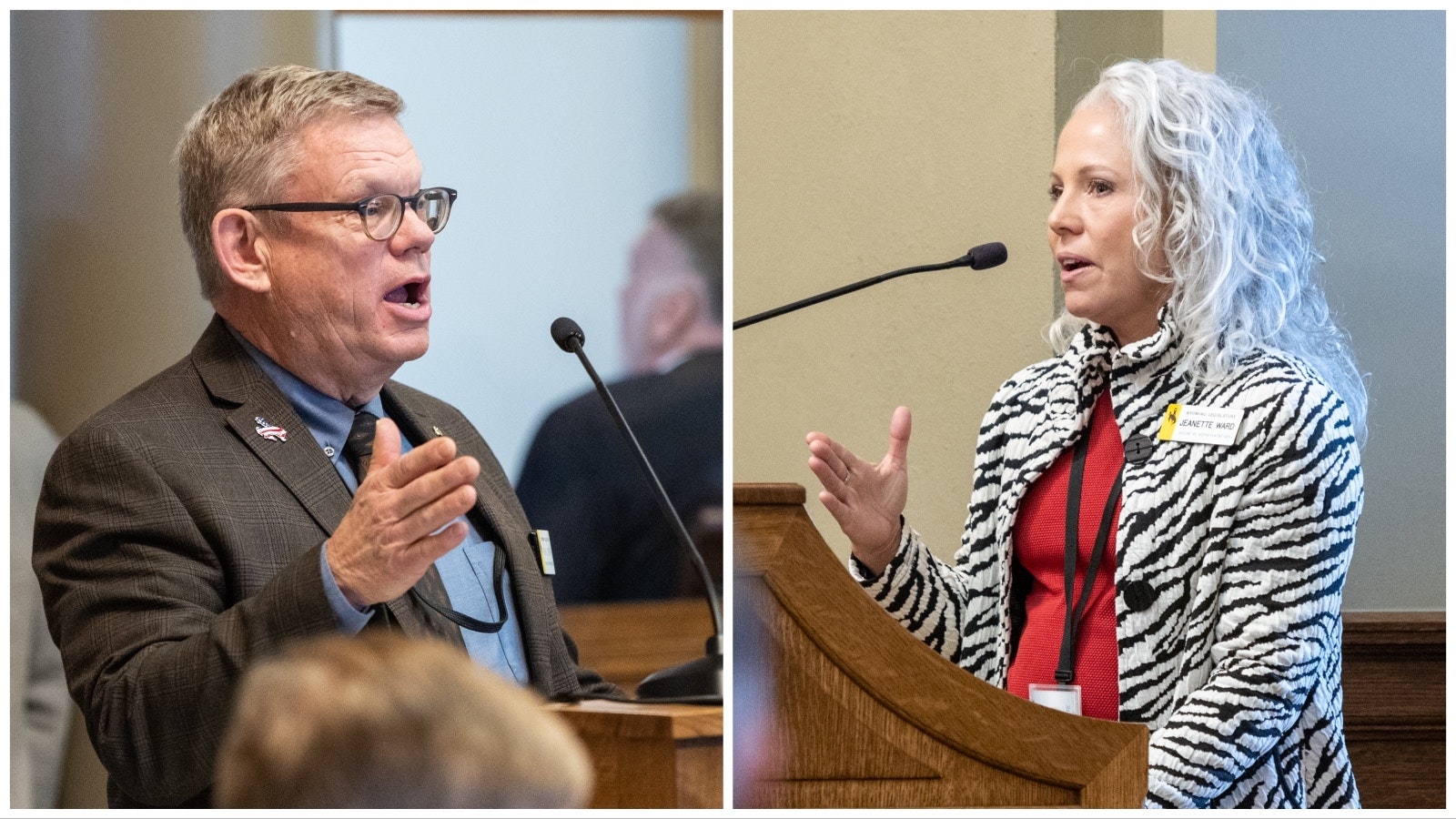Discrimination is usually associated with race, religion or age, but the state of Wyoming is now considering protecting organ transplant recipients from discrimination as well.
The Wyoming Legislature’s Joint Labor, Health and Social Services Committee is supporting a draft bill that prohibits insurance companies from denying or canceling coverage to a person solely on the basis of the person's status as an organ transplant recipient.
The bill also prohibits insurance companies from reducing or increasing premiums based on someone’s status as an organ transplant recipient.
Conversely, an insurance policy can’t preclude a covered person from receiving all or part of an organ or tissue through transplantation or transfusion as a condition of receiving or continuing to receive coverage.
State Sen. Anthony Bouchard, R-Cheyenne, used the example of someone receiving a transplant covered by insurance and then having that same insurance company exclude them from coverage for doing so.
“We know it’s a good procedure on one end, but then on another end we’re going to say (that) we’re going to blacklist you,” he said during Friday’s committee meeting. “It’s a good bill.”
Consumer Protection
The federal Unfair Insurance Trade Practices Act regulates and defines unfair methods of competition and unfair or deceptive trade practices in the business of insurance, including unfair discrimination.
The Act does not expressly prohibit discrimination on the basis of the insured’s status as a living organ donor or recipient.
“This was brought forward as a means of protecting the recipients,” said Rep. Fred Baldwin, R-Kemmerer, co-chair of the Health, Labor and Social Services committee.
Discrimination against organ transplant recipients isn’t well documented, but discrimination against donors is.
A 2014 National Library of Medicine study found that among 395 donors who changed or initiated health insurance after donation, 7% reported difficulty in doing so, of which more than half were denied insurance altogether and some were told they had a pre-existing condition because they were kidney donors. Among 186 donors who changed or initiated life insurance after donation, 14% were charged higher premiums.
Also On National Radar
Legislation on organ donation discrimination has been addressed in Congress, and earlier this year Wyoming state lawmakers made organ donor protection from insurance discrimination a law, a measure that passed unanimously. Gov. Mark Gordon signed the bill, which goes into effect Saturday.
The newly drafted legislation serves as an extension of the current law.
Rep. Kevin O’Hearn, R-Casper, sponsored the earlier legislation and said he also supports the new measure to protect recipients.
Although people most typically associate transplants with major organs like the heart, kidney and lungs, Baldwin said people should also consider transplant operations for eyes and skin as well.
“This involves a lot of things,” he said.
The new bill does not address discrimination in how people are selected for organ transplants, an issue the National Council on Disability brought to the attention of then-President Donald Trump in 2019.
The council told Trump people with disabilities have long been denied organ transplants as a result of unfounded assumptions about their quality of life and misconceptions about their ability to comply with post-operative care. Nine states have enacted legislation specific to the issue.
Getting Ahead Of A Problem
Tana Howard, deputy commissioner for the Wyoming Department of Insurance, sees the new bill as another form of consumer protection, although her organization has never seen organ donor or recipient discrimination take place in Wyoming.
Rep. Jeanette Ward, R-Casper, used this point to question whether the bill is necessary.
“If this hasn’t been a problem, what problem are we trying to solve?” she questioned. “Do we need a new law to solve a problem that’s not a problem?”
“Getting ahead of a problem” has been the justification she and many other staunchly conservative members of the Legislature have used for supporting certain bills over the past year.
State Rep. Dan Zwonitzer, R-Cheyenne, disagreed with Ward, saying with organ donor discrimination, “even once is too much.”
“If there was some sort of complication where someone was denied after getting an organ transplant when they’re at their most vulnerable, it probably seems like an OK stipulation on our law(s) to ensure they receive coverage,” he said.
Ward voted to support the draft bill, as did the rest of the committee.
Zwonitzer expressed some concerns about aspects of the bill that cover protections for those receiving coverage for post-operative treatments and counseling.
“There are some (organ transplants) that might not require the full range of treatment and full service options and I don’t think I want anybody to be trying to game the system,” he said.
But he finds the language of the bill rather standardized and a small step towards achieving uniformity with other states to help combat federal overreach.
“The more our states are in unison, the less likely our federal government will come in and mandate something else,” he said.
Leo Wolfson can be reached at leo@cowboystatedaily.com.





